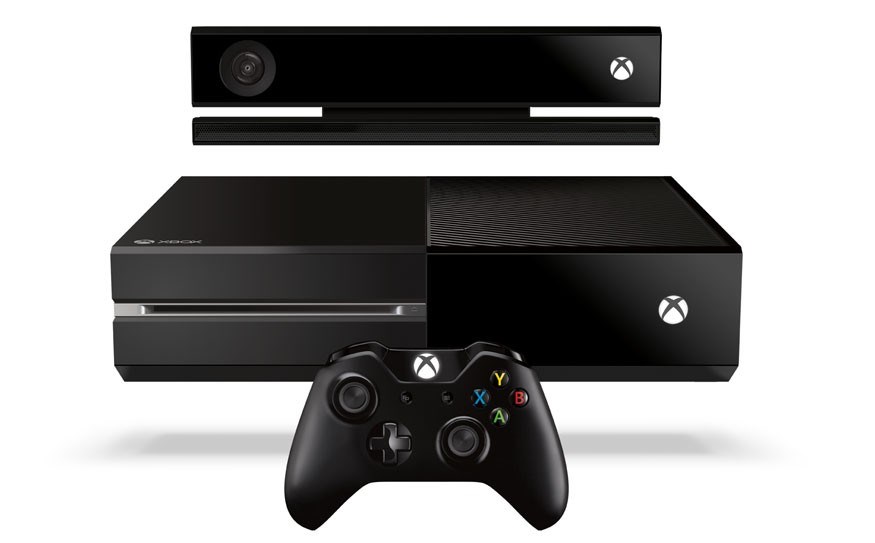While Microsoft plainly put a lot of time and effort into the launch of its next generation console — called the Xbox One because it's supposed to unify your home entertainment experience in a single device — the interwebs were clearly not happy. They rarely are with any major product launch but in this case the reaction was particularly ugly.
There were a lot of stock complaints about the event, from the repetition of stale and predictable buzz phrases like "This changes everything!" and "This is the Future!" to the inordinate focus on television, Kinect and the use of technologies like Skype.
"Where are the games?" people wanted to know — and actual games, rather than quite obviously pre-rendered videos of what cut scenes in future games might look like. It's a valid complaint as the Xbox is first and foremost a game console, and all the other things it can do — surf the web, watch movies and television shows, call grandma — are just side benefits, some additional reasons to justify a big purchase. People can already do all those things on their phones, tablets and computers, after all.
Another one of the biggest complaints has to do with the backwards compatibility of games, something neither Xbox One or the Playstation 4 will offer out of the box for the simple reason that the core programming architecture has completely changed, and both systems have embraced the same 64-bit, x86 computing model similar to PCs. There are good reasons for the change, including the ability to develop cross-platform games more easily and the additional computing power available, as well as the inherent limitations and complications that would have arisen by continuing to work on dated platforms like the Power PC/Cell architecture.
I own around 15 Xbox 360 games myself, and it's disappointing that none of them (or any of the two dozen or so Xbox Live Arcade Games I've downloaded over the years), will port over to the Xbox One if I decide to upgrade.
But I also understand that it's unreasonable to expect any kind of true backwards compatibility in a next generation system. When the original PS3 came out, for example, Sony made sure it could still play PS2 games by essentially building an almost exact replica of PS2 hardware on top of the next generation PS3 hardware. The result was a huge box of a console that was slow to gain market share, and it was probably smart decision to drop PS2 support from the PS3 "slim" models that came out a few years later.
The reality is that it's been around seven years since the Xbox 360 hit shelves, and the technology inside — as good as it still is — has been leapfrogged by PCs. For example, the 512MB of memory that Xbox 360 ships with is kind of a joke these days, and the Xbox One (which some are calling the Xbone for brevity/levity) will ship with 16 times as much memory, or more than 8GB. Even that's a middling solution as a lot of high-end gaming PCs are shipping with 16GB these days.
The idea of running last generation software on the Xbone is laughable in a way, even if it hurts to see all your old games gather dust. Some of those games will no doubt get next generation ports that you'll have to buy a second time, but in the meantime your best and only option will be to keep your Xbox 360 until one day it gives out. Microsoft has pledged to support the Xbox 360 for a long time, and given the fact that they're still supporting Windows XP it's safe to assume they mean it. It's also safe to assume that game developers will continue to crank out games for years — after all, the global Xbox 360 install base is over 70 million, and you don't turn your back on that kind of a market.
Another major issue for people is the large grey area that continues to exist around used/borrowed games, and how much the system needs to be connected to the web.
So far Microsoft has said that the Xbox One needs to be connected, but you don't necessarily have to be connected at all times or when playing games. A lot of that connectivity will be decided by the game publishers themselves. As for used/borrowed games, it appears that there's going to be some kind of a fee required to play a used game — something that can't be enforced unless there's and "always on" component. As someone who buys used games this is a bit disturbing but I'll keep my pitchfork at bay until I get more details.
As for the complaint about the lack of games at the launch, I'm hoping Microsoft will get into the nitty gritty at the E3 electronics expo from June 11 to June 13 — the same time we'll hear more about Sony's PS4 console.
The Xbox One system itself is expected to launch some time this year with 15 launch titles, including a handful of exclusives. By the end of the first year something like 15 exclusive titles will be released.




